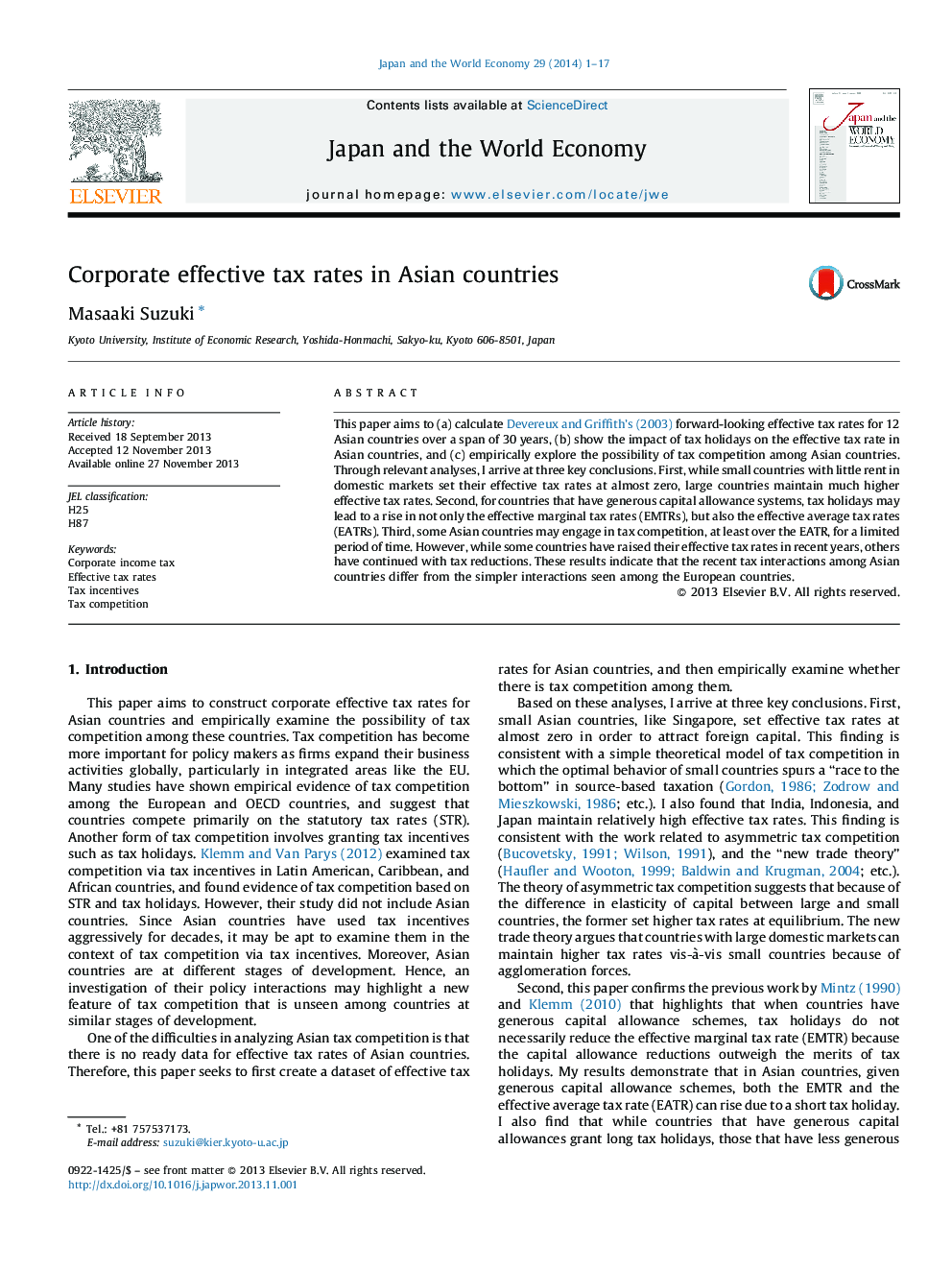| Article ID | Journal | Published Year | Pages | File Type |
|---|---|---|---|---|
| 5086153 | Japan and the World Economy | 2014 | 17 Pages |
Abstract
This paper aims to (a) calculate Devereux and Griffith's (2003) forward-looking effective tax rates for 12 Asian countries over a span of 30 years, (b) show the impact of tax holidays on the effective tax rate in Asian countries, and (c) empirically explore the possibility of tax competition among Asian countries. Through relevant analyses, I arrive at three key conclusions. First, while small countries with little rent in domestic markets set their effective tax rates at almost zero, large countries maintain much higher effective tax rates. Second, for countries that have generous capital allowance systems, tax holidays may lead to a rise in not only the effective marginal tax rates (EMTRs), but also the effective average tax rates (EATRs). Third, some Asian countries may engage in tax competition, at least over the EATR, for a limited period of time. However, while some countries have raised their effective tax rates in recent years, others have continued with tax reductions. These results indicate that the recent tax interactions among Asian countries differ from the simpler interactions seen among the European countries.
Related Topics
Social Sciences and Humanities
Economics, Econometrics and Finance
Economics and Econometrics
Authors
Masaaki Suzuki,
